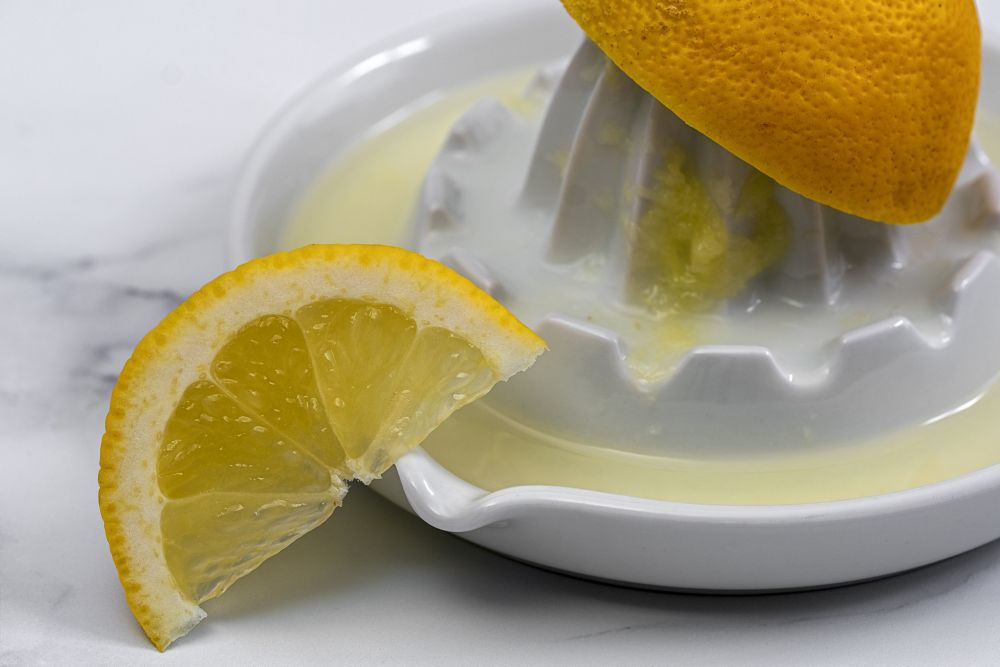Can You Freeze Lemon Juice? Here’s How You Can Do This Right
When you have a favorite drink, especially one that you make yourself, you want for it to keep for as long as possible. When it comes to lemon juice, that’s even more true as you put some elbow work into making it.
Let’s see whether freezing lemon juice is something that’s going to work as you try to make sure that you can keep it for longer.
Can You Freeze Lemon Juice?
One of our readers has a question about freezing lemon juice too, although their reasoning is a bit different than ours – using lemon juice in various recipes. Let’s see their message:
I have a recipe that calls for two tablespoons of freshly squeezed lemon juice. I don’t really like the flavour of the bottled lemon juice you can buy in stores, but I don’t typically keep lemons on hand.
I know that I won’t use the rest of the lemon until the next time I bake, and it seems a shame to throw away a perfectly good lemon. I’m wondering if there’s a way to preserve the excess juice for later use without losing out on flavour. Can you freeze lemon juice?
Yes, you can freeze lemon juice.
It’s not recommended to freeze bottled lemon juice as it becomes bitter. However, freezing freshly squeezed lemon juice is perfectly fine.
The key to great-tasting lemon juice is to freeze it while it is as fresh as possible. That means ideally within an hour or two of juicing. As long as it is protected from freezer burn, the flavor of the juice should withstand freezing quite well.
How to Freeze Lemon Juice?
If you plan on only using small amounts of lemon juice at a time, consider freezing it in ice cube trays. Each regular-sized cube holds about 2tbsp. of lemon juice, so it’s easy to portion control.
- Wash out an ice cube tray and dry it completely.
- Fill each cube until juice before full to allow for expansion.
- Place the ice cube tray in the freezer for a few hours until the cubes are completely frozen.
- Once frozen, remove the ice cube tray from the freezer and pop out the lemon juice cubes.
- Place the lemon juice cubes into a freezer bag.
- Squeeze out the excess air, then seal and label the bags.
- Lemon juice can keep in the fridge for several months before beginning to lose flavor.
Lemon juice can also be frozen in larger batches:
- Pour the lemon juice into a freezer-safe container or freezer bag, removing the excess air, and then sealing the container.
- Place in the freezer.
How to Keep Lemon Juice for Longer?
One of the things you can do to make sure your lemon juice is going to keep for longer is to use a vacuum sealer. If you’re going to freeze the juice in the form of ice cubes, you can put them all in a bag and then use the sealer on it to make sure all air goes out and the flavor remains intact.
If you want to freezer a bigger batch of juice, we suggest you put it in the bag and freeze it up and then use the vacuum sealer on the bag, taking out all the extra air.
We have a long list of vacuum sealers you should take a look at, but our favorite is the FoodSaver V4840 2-in-1 Vacuum Sealer Machine, an appliance that works with freezer bags and containers alike. It will save you time and money in the long run.
How to Thaw Lemon Juice?
Thawing your lemon juice depends on how you froze it up.
To thaw lemon juice cubes:
- To use, simply remove the desired number of cubes from the freezer and place in a cup or bowl to thaw in the fridge.
- Cubes could also be defrosted in the microwave. T
- hen, add the juice to your favorite recipe.
To thaw lemon juice bags:
- To thaw, remove the container from the freezer and thaw in the fridge.
- Once thawed, use as desired.
For best results, use within a day or two of thawing, and don’t refreeze previously frozen lemon juice.
Can You Freeze Lemons?
Yes, you can freeze whole lemons. If you want to freeze whole lemons, that should work fairly well, especially since they’re juicy fruits. You should keep them in freezer bags or frezer-safe containers. Slicing them also works just as well, whether in half, quarters, or smaller slices you can use with drinks or fish later on.



